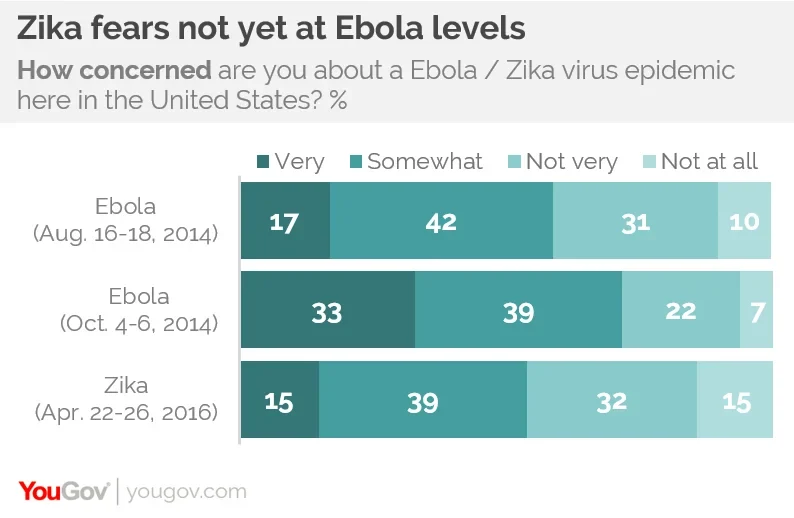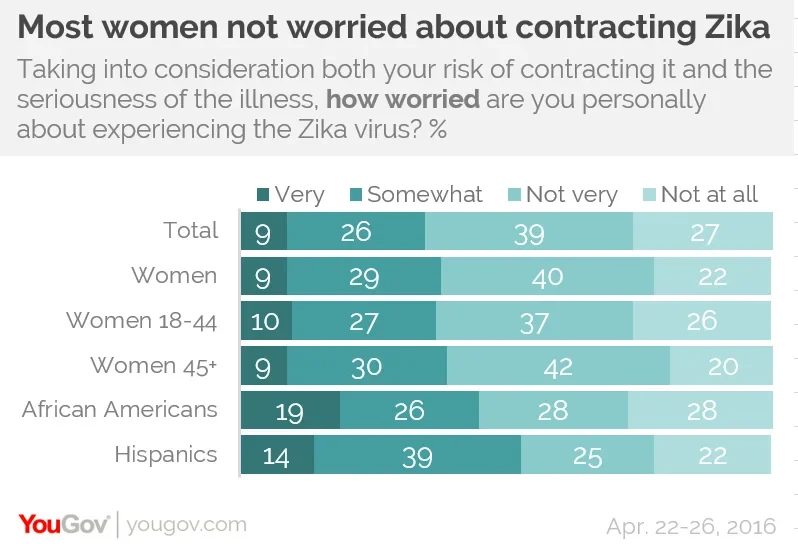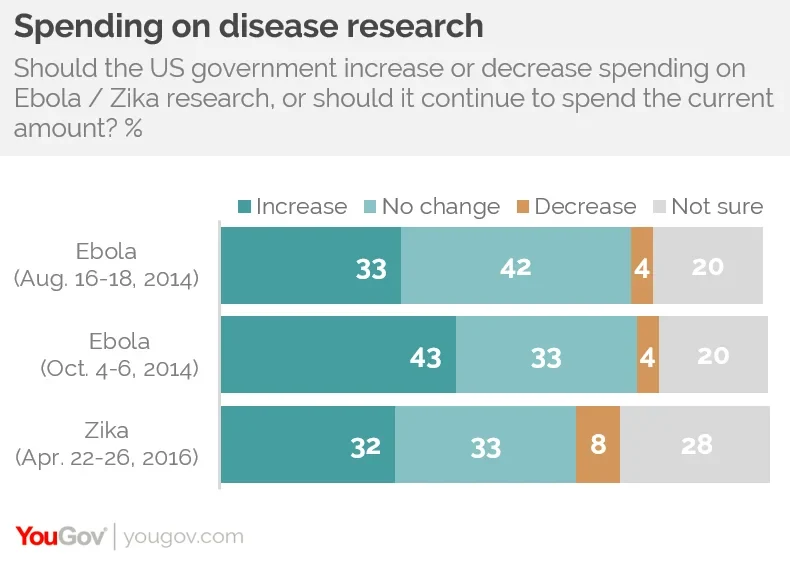Americans were much more worried about Ebola in 2014, especially after a case was diagnosed in the United States
Two years ago, Americans worried about Ebola, and concern grew after the African-based illness came to the United States. Now, with another virus, Zika, spreading throughout this hemisphere, Americans in the latest Economist/YouGov Poll are worried about it – though the level of concern is about what it was before the first case of Ebola was diagnosed in the United State in September 2014.

The percentage of Americans “very concerned” about an Ebola epidemic in the United States doubled after that first case – and the death – of a man from Liberia who had been asymptomatic before his arriving in the U.S. But Zika is already in the United States. There have been over 400 cases in Puerto Rico alone, most apparently transmitted by mosquito bite; the cases in the 50 U.S. states are mostly travel-related, contracted by mosquito bites outside the U.S., and a few spread by sexual transmission. Ebola is not mosquito-borne.
But unlike the virulently life-threatening Ebola virus, the Zika disease seems less dangerous – except when it comes to pregnant women. Women who have had the Zika virus while pregnant may give birth to children with microcephaly: a birth defect that causes small heads, brain problems and a shortened life span.
However, concern about personally contracting the virus isn’t much different between men and women; nor is it much different between women who are and who are not of child-bearing age. Most are not especially worried about being infected with the virus.

There is somewhat more concern among African-Americans, and especially among Hispanics. The virus first became prevalent in South America, and has spread to much of Central America, in addition to the several hundred cases in Puerto Rico.
About a third of the public think the U.S. should be doing more to prevent the spread of the virus. But about the same percentage are content with what the government has done so far. There is little partisan difference on this question or on one asking about whether the government should be spending more money on Zika research.

These distributions are very much like U.S. opinion about government action on Ebola before the diagnosis of that first case in the U.S. Afterwards, there was more willingness for the U.S. to spend more, and more criticism of the government for not doing enough.
See the Economist/YouGov results
Economist/YouGov poll archives can be found here.








